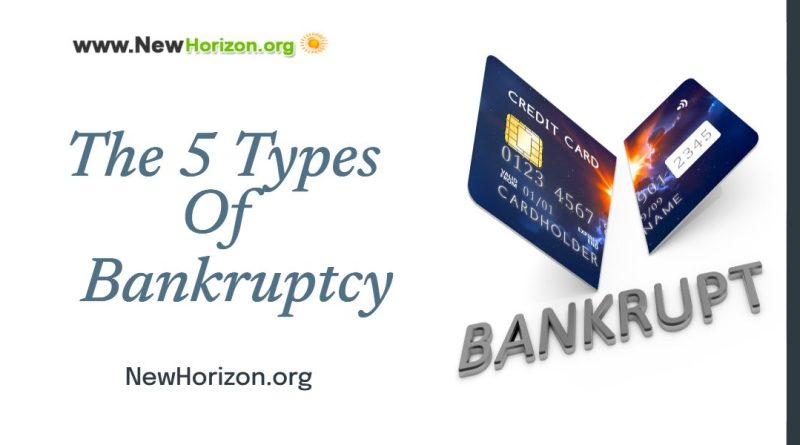The 5 Different Kinds of Bankruptcy
The thought of filing for bankruptcy can be a daunting one, but it’s important to know that you have options. There are multiple types of bankruptcies available, each with its own considerations and processes. Whether you’ve b een hit by an unexpected financial emergency or are just trying to reduce your debt, understanding the different kinds of bankruptcy can make all the difference in ensuring your needs are met.
een hit by an unexpected financial emergency or are just trying to reduce your debt, understanding the different kinds of bankruptcy can make all the difference in ensuring your needs are met.
Sometimes debts can spiral out of control. Both consumers and businesses are faced with the fact that this no way they can pay back what they owe. That’s when filing for bankruptcy becomes their only option.
Understandably, the government made provisions on different bankruptcy proceedings that a person or a group can acquire to protect themselves from creditors. This way, lawsuits that creditors are bound to file against the borrower would be avoided. They will also have a chance to protect their properties or retain possession of their assets.
However, it is essential to remember that declaring bankruptcy will not prohibit criminal prosecution or cancel tax obligations. Also, a person may not use bankruptcy as a reason to excuse himself for his financial obligations to his children or alimony.
There are many different kinds of bankruptcy. Here are some basic points about some of the more common types of bankruptcy that are available to the public.
- Chapter 7. Chapter 7 bankruptcy is the type of bankruptcy most people are familiar with. It is often referred to as a “liquidation” bankruptcy because it involves the sale of the debtor’s nonexempt assets to pay off their creditors. In exchange, the debtor’s remaining unsecured debts, such as credit card debt and medical bills, are discharged. However, not everyone is eligible for Chapter 7 bankruptcy. You need to work with a credit counseling company that will determine if you are eligible. A means test is used to determine if an individual’s income is low enough to qualify.
- Chapter 13. is similar to Chapter 11 bankruptcy, but it is designed for individuals with a regular income who want to reorganize their debts. In a Chapter 13 bankruptcy, the debtor proposes a plan to repay their debts over a period of time, usually three to five years. The plan must be approved by the bankruptcy court and the debtor’s creditors. Unlike Chapter 7 bankruptcy, the debtor is not required to sell their assets to pay off their creditors.
- Chapter 11. This type of bankruptcy is typically used by businesses to reorganize their debts while continuing to operate. It can also be used by individuals with large debts who do not qualify for Chapter 13 bankruptcy. In a Chapter 11 bankruptcy, the debtor proposes a plan to restructure their debts and make payments to creditors over a period of time. The plan must be approved by the bankruptcy court and the debtor’s creditors.
- Chapter 12. . is a type of bankruptcy designed for family farmers and fishermen. It allows them to restructure their debts and avoid foreclosure or repossession of their property. In a Chapter 12 bankruptcy, the debtor proposes a plan to repay their debts over a period of time. The plan must be approved by the bankruptcy court and the debtor’s creditors.
- Chapter 9. Chapter 9 bankruptcy is a type of bankruptcy designed for municipalities, such as cities and towns. It allows them to restructure their debts and continue providing essential services to their residents. In a Chapter 9 bankruptcy, the municipality proposes a plan to restructure its debts and make payments to creditors over a period of time. The plan must be approved by the bankruptcy court and the municipality’s creditors.
In conclusion, bankruptcy can provide individuals and businesses with a fresh start by eliminating or restructuring their debts. However, it is important to understand the different types of bankruptcy and their eligibility requirements before deciding which one is right for you. Consulting with a bankruptcy attorney can help you determine which type of bankruptcy is best suited for your particular situation.
Updated 3/24/23 by L. Roberts



